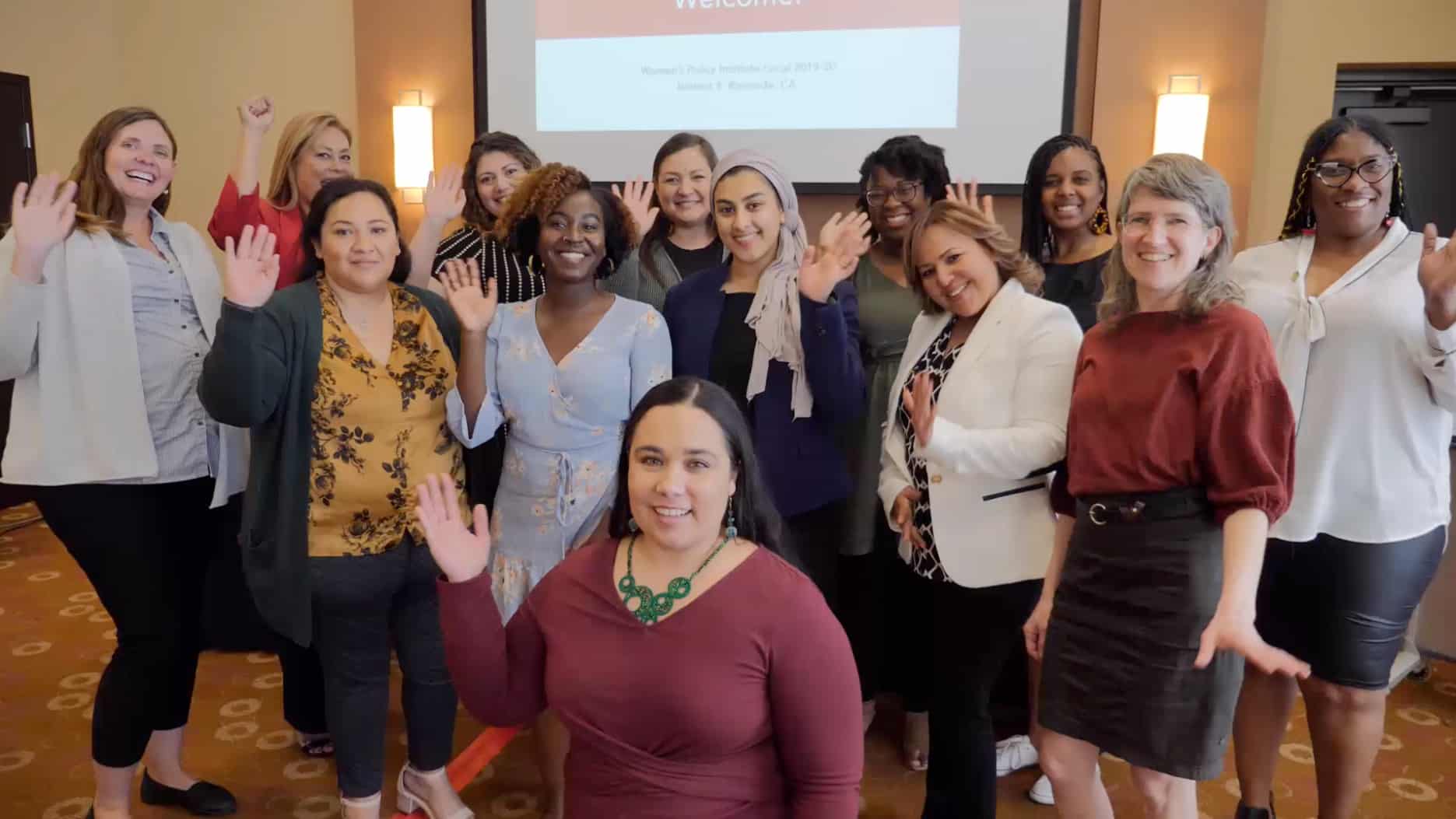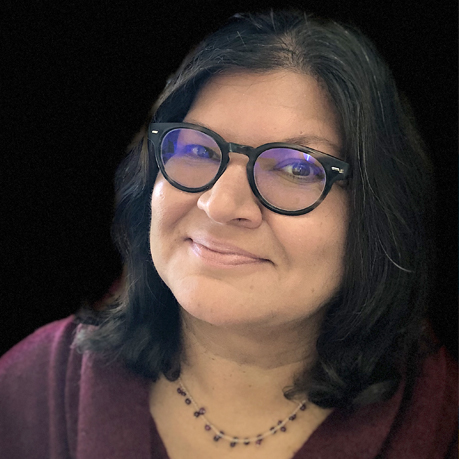
In recognition of Women’s History Month and LSF’s long-standing partnership with WFC, LSF’s Francesca Bitton spoke with CEO Surina Khan on her work and what lies ahead.
Francesca: Surina, you have been a leader in the philanthropic and social justice sector for more than three decades. Who or what inspired you to do this work?
Surina: People often say that the personal is political, and that’s absolutely true for me. When I came out as a lesbian in 1989, I realized there was a whole structure of government and culture that was trying to deny basic human rights to LGBTQ people, and I knew I had to be engaged in a movement that was seeking justice. Coming out was a difficult process for both me and my family. It was truly a turning point for me. As a result, I started doing social justice work in my early 20s and was really inspired by the older generation of activists, specifically in the gender justice and LGBTQ movement. They inspired me with their vision.
Today, I continue to be inspired by the people who are leading in this space. Someone who inspired me when I first became active in the social justice movement was Carmen Vasquez, the founding director of the Women’s Building in San Francisco, a founder of the Lavender Youth Recreation and Information Center and the LGBT Health and Human Services Network. Carmen recently passed away from COVID-19 and throughout her life she impacted the actions of so many, including me. I remember Carmen once saying, “Movement building is about moving people,” and those words have stuck with me ever since she voiced them — they are a philosophy and principle that I hold as central to achieving racial, gender and economic justice because we need to expand our base of supporters and we can do that by meeting people where they are.
Francesca: A recent San Francisco Chronicle article from 1982 described LSF’s support at the time as “unheard of.” How important is it for organizations like yours to have the support of company foundations like LSF?
Surina: Our founders did an analysis on giving trends to gender justice organizations before they founded WFC in 1979 and learned that LSF was an outlier, as it was giving 10% of its funding to organizations and programs that supported gender equity. The norm back then was about 1%. Your foundation has been ahead of its time in terms of funding the gender justice movement and should be a model for other foundations to invest in gender justice as a way of accelerating change.
LSF was also the first funder of our Women’s Policy Institute (WPI), which advances racial, economic and gender justice throughout California by building and investing in the leadership of a dynamic cohort of community leaders. To date, the Women’s Policy Institute has trained almost 600 advocates and organizers who have passed over 43 new laws or local policies. And those leaders are all connected to thousands of people in their own networks, which means we have the power to activate millions of people across California for progressive policy change through the WPI network alone.
We have a lot to do to elevate gender justice work and it’s critical that we fix these broken systems. Philanthropy and companies must begin to invest in women if they want to see a more just and capable world, the evidence is there. – Surina Khan
Francesca: COVID-19 has had a disproportionate impact on women, especially women of color. How are you leading the Women’s Foundation to take on this moment? What can we do as a society to reduce the economic insecurity and harm that women experience when disasters strike?
Surina: Nationally, 100% of the jobs lost in December 2020 were lost by women. In moments of crisis, those who are most vulnerable become more vulnerable, and that’s the case with women of color in terms of job loss and safety. We recognized early on that the pandemic was impacting women of color disproportionately. In California, two-thirds of tipped jobs, part-time jobs and minimum-wage jobs are held by women of color. Those are the women who lost their jobs. And at the same time, 80% of essential jobs are held by women, especially women of color. Any way you look at it, women of color are disproportionately affected by this pandemic.
It was clear we needed to lead by taking action. The first thing we did was ensure our grant partners had the resources they needed to thrive in the new work-from-home set-up. We did this by sending them supplemental general operating support grants because we knew that they might not have laptops or Zoom memberships to enable them to work from home.
Additionally, we just approved a three-year organizational framework that will take us through 2023 with a bold goal to move $50 million in support to grant partners, training community leaders, and to leverage our networks and connections to make more visible the need for investments in gender equity and justice.
We are prepared to be as responsive as we have been in the past year. In 2020, through our Relief and Resilience Fund, we made grants to every domestic violence organization in the state because we saw that domestic violence rates were spiking in every one of California’s 58 counties. LSF contributed to the Fund early in the pandemic, and as a result of our funding partnerships with foundations like LSF, within a matter of weeks we responded and moved money to more than 150 organizations. We also increased our support to women-led climate justice organizations during the California fires, and increased our support to Black-led organizations during the racial justice reckoning.
We will remain committed to supporting racial, gender, and economic justice in California until we realize the feminist future we all deserve.
Francesca: Given that it is Women’s History Month, what is the legacy of the women who came before you at Women’s Foundation California and what is the legacy you hope to leave?
Surina: The legacy of the women who came before me were those who recognized a problem and took it into their own hands to come up with a solution. They were women of courage, vision and action. They recognized that in the 1970s only 1% of philanthropic dollars were going to women and girls. It was unacceptable. This was the same decade that I immigrated to the United States with my family. After we immigrated, it didn’t occur to me until I entered this field that my mother wouldn’t have been able to buy the house we lived in or get a credit card in her own name. She would have needed a man to co-sign. This was the environment that our founders at the Women’s Foundation California were living in. Collectively, they raised money and immediately began getting that money out into the community. Instead of taking years to build an endowment, they saw an urgency and they responded with action. That commitment to action still drives our work.
My hope is to build on that legacy, and there are a couple things that I’m proud to say we’ve done, including our institutional commitment to racial justice. We have long been committed to supporting women of color — from the staff and board level of our organization down to supporting women-of-color-led organizations. Almost 90% of our grants go to Black Indigenous People of Color (BIPOC) organizations, and in our Women’s Policy Institute, close to 90% are women of color, gender non-conforming and transgender people. Our staff and Leadership Team are also close to 90% women of color and our Board is almost 80% women and people of color.
We will also continue to support innovative leaders. A number of prominent movement organizations received their very first grant from WFC, including the Young Women’s Freedom Center, the Community Water Center, California Latinas for Reproductive Justice, and ACT for Women and Girls. We recognize innovative leadership when we see it and are committed to supporting movement leaders with all the resources we have. We are committed to our founding principle that those who are closest to the problems in their communities are also closest to the solutions.
